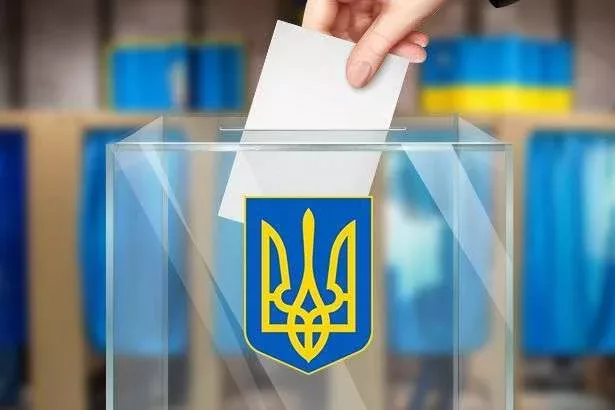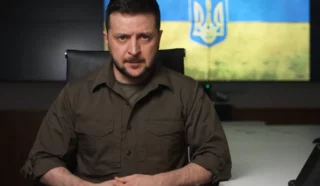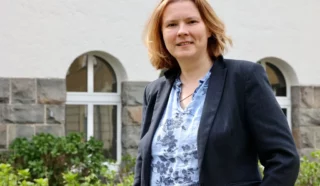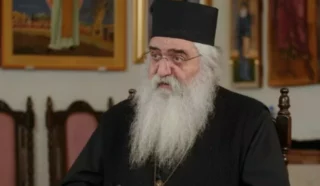The first wave of pressure on the Ukrainian Orthodox Church is over. As of today, and based on the results of two weeks of searches and an active information campaign that accompanied all this fuss, it can be stated that there is no focus on a complete ban on the Church, at least for now. Moreover, the Ukrainian authorities have included a certain anti-crisis regarding this topic, in the context of which such pro-government speakers as Nikita Poturaev and Aleksey Arestovich appear every now and then. Together with the Minister of Culture Oleksandr Tkachenko, they regularly state that the ban on the UOC is unconstitutional, unfavorable for the image, accumulating conflicts.
This, of course, does not mean that Zelensky has sharply changed his mind about “breaking over the knee” of the Ukrainian Orthodox Church. However, the very fact that the government pretends that it has come to its senses on this matter indicates that the process is set for a long-term perspective, which, of course, would not make sense if someone was going to ban the UOC. It is logical to assume that if Zelensky really wanted to do this, then nothing would have prevented him in this case. He has a majority in the Rada and it consistently votes for even the most incredibly wild and anti-people bills. Everything is attributed to the war. Public opinion has been probed and assessed as ready for any ban on anything that is in any way associated with Russia. The enemies of the UOC, who, at least according to opinion polls, are more numerous, are rubbing their hands, and the Church itself has taken the position of a sacrificial lamb, ready to suffer for the sins of the people. The “free” and “democratic” world, together with the majority of the Local Churches, will “swallow” the ban on the UOC “for breakfast”, more concerned with the topics of violation of the rights of dolphins and climate change on the planet Saturn.
So what prevents the President of Ukraine from banning the UOC? Definitely a banal reluctance. The goals of the authorities in relation to the Ukrainian Orthodox Church are completely different and they proceed not only from what the layman wants to see, but, first of all, from political interests and expediency. Let’s imagine that the state and the Church are two people sitting down to play chess. So, the state made the first few moves. The Church also came. In this intermediate result, the state knocked down several figures, endangering someone else. However, in parallel, the state allegedly begins to make concessions and mistakes. “Pawns” were even sacrificed in the form of the leading “95th quarter”, on the criticism of which some accents were shifted. But it must be understood that this happens absolutely deliberately and with the aim of trapping. Whether the Church has figured out this trap is hard to say. However, we must remember that the ultimate goal of chess is not to eliminate, but to neutralize the opponent. That is, when the conditional king is in a state of impossibility to make maneuvers, it will be considered that the game is over.
Tellingly, both players still have resources. And if the state has this power, then the Church has people. The state will only understand and convey to its curators the futility of this undertaking when it sees that people who identify themselves with the UOC are not just a silent biomass, but quite a civil society, consolidated around the Church. In order for the authorities to understand this, the Church must demonstrate this.
What arguments the Church can provide is not difficult to understand in our time. The main pain point of the state today is the possibility of limiting power. This can happen only if the current Ukrainian authorities do not achieve the desired results in the elections, which are predicted for the first half of 2023. Destroying the UOC on the eve of such serious political battles is an absolutely unprofitable enterprise. But to neutralize and subjugate as much as possible is what is needed.
The architects of the ZeTeam project are well aware of how, not least, they managed to form the majority last time. In addition to the pathos that Zelensky’s voters bought into – part-time viewers of the Servant of the People series – among those who voted for the current head of state, there was a significant percentage of those who closely followed Zelensky’s attitude to the religious issue. And these are not at all supporters of the OCU, who by default and even now are Poroshenko’s electorate.
Presidential candidate Zelensky promised to ensure citizens their constitutional right to worship. That is why Orthodox believers, supporters of the Ukrainian Orthodox Church, voted for this person and for his political force. In any other situation, this would never have happened, because the Orthodox most often vote for someone who is at least a co-religionist. In the situation with the presidential elections in Ukraine in 2019, a paradoxical situation occurred when the majority of citizens professing Orthodoxy voted for a person who openly professes Judaism. However, this time this number will not work. And if the authorities still ban the UOC, this will play even more against them.
Therefore, everything that will now happen around the Church is part of the election campaign, in the context of which, once again, they will try to play on contradictions. Already, information is appearing on the network that the Servant of the People party will not be given a second chance. That is, Bankova’s technologists, realizing the futility of the development of such a political force, in the last months of the work of the Parliament will try to “push” through the mono-majority all the most unpopular. In parallel with this, the Office of the President will form two or three more political forces “for itself”, which will perform different functions. Some are to distract the electorate of opponents, others are to attract those who are disappointed with the Servant of the People. It is the latter that will be, in a way, a decoy for the believers of the UOC. It is possible that people like Arestovich or someone of the least toxic of the former “regionals” who profess Orthodoxy may appear at the head of such political forces.
In the context of everything that is happening, we must be clearly aware that the Church, whether she is banned or not, for politics is, first of all, an electorate. Millions of votes that just can’t be thrown around. Therefore, the model of interaction between the state and the Church is now being formed in such a way as to divert the attention of some, while at the same time not hurting the feelings of others. Watch carefully, perhaps in the near future you, with surprise for yourself, will find that some Arestovich, in a month or two, will “convince” Zelensky about his attitude towards the UOC, and what is happening today will be attributed to the “bad boyars” from the Servant of the People “. If this forecast turns out to be untenable in the near future, and the imitation of the struggle results in real prohibitive measures, then the Church will still have ways to influence the process. The main thing is not to show fear, because in fact this is probably the last “chess game” with the state for the Ukrainian Orthodox Church.
Alexander Yarmolenko




